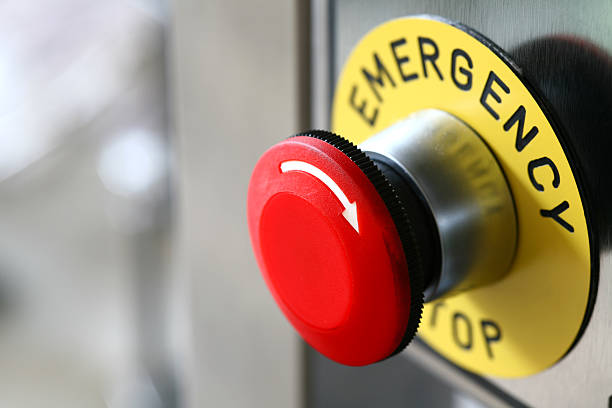When Every Second Counts: Effective Emergency Strategies for Businesses

Emergencies can strike at any time, and propane businesses, due to the nature of their work, must be prepared for a range of unexpected situations. Whether it’s a gas leak, equipment failure, or an accident involving a propane delivery, how you respond can make all the difference in minimizing damage and ensuring the safety of your employees, customers, and business operations. By having a well-prepared emergency management plan in place, propane companies can handle crises efficiently, reduce downtime, and ensure full compliance with safety regulations.
Preparing for an Emergency
Preparation is the first step in managing emergencies effectively. Propane businesses should develop a comprehensive emergency response plan tailored to their specific operations. This plan should cover potential risks, emergency procedures, and communication protocols. Ensuring that all employees are familiar with this plan is essential for a quick and coordinated response. Regular drills and training will help employees practice their roles and understand how to act swiftly in high-pressure situations.
Understanding Common Emergency Scenarios
Propane businesses face a unique set of potential emergency situations that require specific actions. Some of the most common emergencies include:
Gas Leaks: Propane leaks pose a serious risk and can lead to explosions if not handled correctly. Proper emergency response should include turning off the gas supply, evacuating the area, and contacting emergency services immediately.
Fires: Fire hazards are ever-present in the propane industry. Quick action, such as using the proper fire extinguishers and notifying local fire departments, is critical to preventing a small incident from escalating.
Vehicle Accidents: Propane delivery trucks are large and carry hazardous materials. An accident, whether involving another vehicle or a tank, can cause significant damage or injury. Having procedures in place for safely handling these incidents is vital, including immediate evacuation and reporting.
Weather Events: Natural disasters like hurricanes, tornadoes, or floods can disrupt propane delivery and damage equipment. Businesses should be prepared to protect tanks and infrastructure and have contingency plans in place for these events.
Communicating Clearly
Effective communication during an emergency is crucial for minimizing confusion and ensuring a coordinated response. Everyone involved – employees, emergency responders, and customers – needs to be aware of the situation and know the next steps. Designating an emergency contact person who can relay information efficiently to the right people is an important part of the plan.
Additionally, informing customers of any service delays or disruptions should be done promptly. A business’s reputation can be significantly impacted if customers feel they were not kept in the loop during an emergency. Clear, calm, and honest communication helps maintain trust and ensures customers are not left wondering about the status of their deliveries.
Prioritizing Employee Safety and Training
The safety of your employees should always be the top priority during an emergency. Every team member should know what actions to take in the event of various scenarios, and regular training should be conducted to reinforce safety protocols.
Training should cover emergency evacuation procedures, the proper use of safety equipment like fire extinguishers or first aid kits, and the steps to take when handling hazardous materials. Knowing how to act quickly and confidently can do much to prevent injuries and reduce the severity of an incident.
Conducting Regular Drills and Simulations
Preparedness isn’t just about creating a plan; it’s about putting that plan into action. Regular drills and simulations help employees practice emergency procedures and identify areas for improvement. These exercises should mimic real-life scenarios to ensure that everyone knows what to do when the stakes are high.
Drills can range from fire evacuations to simulated gas leaks or vehicle accidents. Reviewing the outcomes of these drills helps fine-tune your emergency plan and ensures that employees understand their roles and responsibilities under pressure.
Maintaining Safety Equipment
Having the right safety equipment in place is crucial for managing emergency situations. Propane businesses should regularly inspect and maintain safety equipment such as fire extinguishers, gas detectors, first aid kits, and emergency shutdown systems.
Equipment failure during an emergency can escalate the situation, so keeping everything in working order is a key part of an emergency management plan. Ensure that inspection schedules are followed, and make necessary repairs or replacements as soon as issues are identified.
Developing Relationships with Emergency Responders
Building a strong relationship with local emergency services can help improve response times and coordination in the event of an emergency. Establishing communication channels with fire departments, police, and hazardous materials teams ensures that these responders are familiar with your operations and can act quickly when needed.
Consider inviting local emergency personnel to your business for tours or training exercises. This not only helps them understand your facility’s specific risks but also fosters a sense of collaboration when an emergency arises.
Enhancing Emergency Management with Technology
Technology can play a significant role in improving emergency preparedness and response. For example, automated systems can detect gas leaks, monitor tank pressure, and send alerts in real-time. These tools can provide early warnings, allowing businesses to act quickly before a situation worsens.
Additionally, digital documentation and cloud-based systems help maintain up-to-date records on safety inspections, training schedules, and emergency contacts. This ensures that all information is easily accessible when needed and helps streamline emergency response efforts.
Turning Crisis into Control
While dealing with the risk of emergencies is an unavoidable part of running a propane business, how you respond to them can make all the difference. A proactive approach – combined with clear communication, thorough employee training, and well-maintained safety equipment – helps ensure that your business can manage crises effectively.
By creating and regularly reviewing an emergency management plan, conducting training drills, and leveraging technology to streamline safety and communication, propane businesses can minimize the impact of emergencies and continue operating smoothly. Taking these steps will also demonstrate your commitment to safety and build trust with your customers, employees, and the community.














